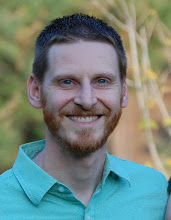…There were some sheepherders living in that same area,
who were staying awake to guard their flocks of sheep overnight.
And then—look!—a Messenger from the Lord
stood over them,
and the Glory of the Lord
blazed all around them
and they were terrified.
But the Messenger told them, “Don’t be afraid!
“I’m here to tell you the good news—
great joy for this whole nation!
He is born for you today—
the Savior, who is Messiah the Lord!—
in David’s town!
“Now this will be your sign:
you will find a baby,
wrapped up tightly,
lying in a feed trough.”
Then all of a sudden there was with that Messenger
a whole legion of the Army of Heaven!
They were praising God and saying,
“Glory to God in the Heights!
And on the earth,
peace to mankind,
and goodwill!”
MERRY CHRISTMAS!
Thursday, December 25, 2008
Glory to God, peace to mankind!
Posted by
Jeff Moss
at
6:37 PM
1 comments
![]()
Tuesday, December 9, 2008
Remembering Patriarch Alexy II of Russia (1929-2008)
 Russian Orthodox Patriarch Alexy II died last Friday near his patriarchal see in Moscow. He had served for eighteen and a half years as "Patriarch of Moscow and All Russia"—the last such Patriarch of the Soviet period, and the first of the newly independent Russia.
Russian Orthodox Patriarch Alexy II died last Friday near his patriarchal see in Moscow. He had served for eighteen and a half years as "Patriarch of Moscow and All Russia"—the last such Patriarch of the Soviet period, and the first of the newly independent Russia.
Alexy was born as Aleksei Ridiger in 1929 in a then-independent Estonia, the son of a German-Estonian father and a Russian mother. Earlier in his church career, he was suspected of collaborating with the Soviet government in the repression of Russian believers. However, in recent decades he had overseen a flourishing of the Russian Orthodox Church while also contributing to Russia's official coldness toward non-Orthodox Christians: Catholics, Baptists, and others. One of his greatest legacies is the 2007 reunion between the Russian Orthodox Church (Moscow Patriarchate) and the Russian Orthodox Church Outside Russia, which had been separated for 80 years.
A BBC retrospective captures some of the contradictions of Alexy's life:Patriarch Alexiy II, who died on Friday, had an extraordinary career, in which he switched from suppressing the Russian Orthodox Church to being its champion.
A favourite of the KGB, he was promoted rapidly through the Church hierarchy, doing the Kremlin's bidding at a time when dissident priests were thrown into jail.
As the Church's effective foreign minister, he helped cover up the repression of Russian Christians, defending the Soviet system to the outside world.
He rose quickly through the ranks, being elected head of the Russian Orthodox Church at a crucial time, in 1990, with the Soviet Union on the path to collapse.
Surprisingly, perhaps, he seized the moment, and went on to oversee the revival and flowering of the Church, exuding moral authority and inspiring devotion among his followers.
Posted by
Jeff Moss
at
7:41 PM
24
comments
![]()
Monday, December 8, 2008
The sacrifice holiday
Today the world's Muslims are celebrating their biggest holiday of the year: "Eid al-Adha," which means "Festival of the Sacrifice."
On this day they commemorate the story of Abraham and his son which the Bible also records in Genesis 22. God tested Abraham by telling him to offer his son as a sacrifice, and Abraham obediently went to the place of sacrifice and prepared to make the offering. At that moment, God intervened and spared Abraham's son, giving him a ram to offer instead. (In the Bible, the son whose life was spared is identified as Isaac. The Qur'an does not say which son it was, but Islamic tradition names him as "Isma`il" or Ishmael.) To this day, devout Muslims slaughter a sheep or goat on Eid as a reminder of Abraham's obedience and God's mercy. They then share the meat with family, friends, and the poor, and celebrate the day as a joyful festival.
If this story belongs just as much to Christians as to Muslims, why don't we celebrate Eid al-Adha too? The answer is that, in a sense, we do. Jews, Christians, and Muslims all testify that Abraham obeyed God by bringing his son to sacrifice, but God spared the son's life and substituted a ram. Now, this true story was a symbol of something greater than itself; the Christian celebration of Good Friday and Easter commemorates the reality to which this symbol points. Messiah Jesus, the Son of God, was brought like Abraham's son to the hill of sacrifice. However, He was not spared there but killed, the "Lamb of God" offered for the sins of the whole world. And so He substituted for the life of everyone who becomes a "son of Abraham" by throwing themselves on God's mercy through Him. Abraham symbolically received his son back from the dead (Hebrews 11:17-19), but God brought His Son back from death in actual fact. The greatest festival of all is the Resurrection of the Son of God, that glorious watershed of human history which we celebrate on Easter Sunday.
Posted by
Jeff Moss
at
11:59 AM
0
comments
![]()
